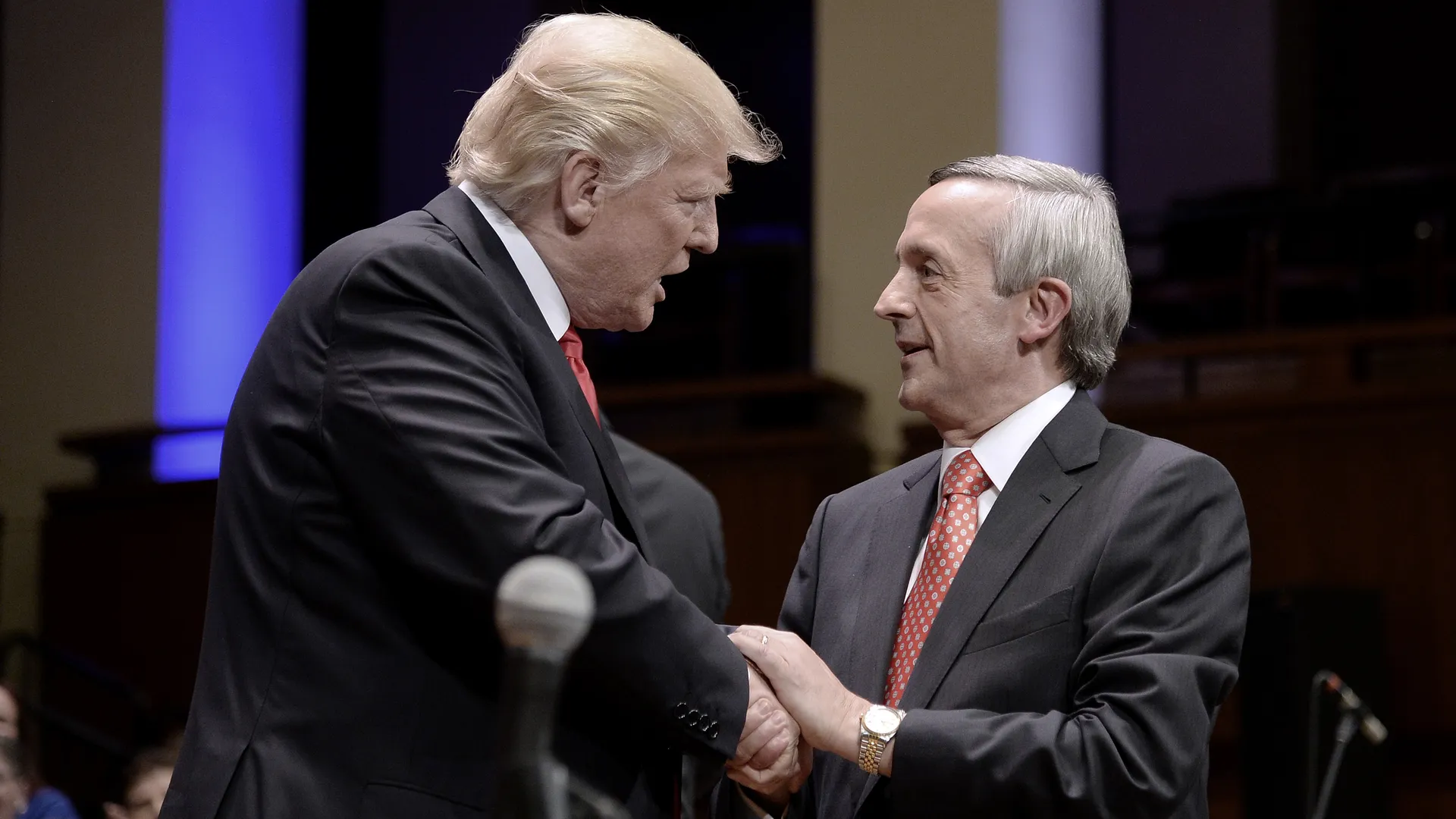Shortly after President-elect Donald Trump concluded his victory speech in West Palm Beach, Florida, last Tuesday, the room erupted into a rendition of the hymn How Great Thou Art. The moment, captured on video, highlighted Trump’s enduring support among conservative evangelical Christians, who have backed him consistently, with more than 80% voting for him in his three presidential campaigns.
Among those present was Robert Jeffress, pastor of First Baptist Church in Dallas, who has been a staunch supporter of Trump. Jeffress, who also preached a sermon for Trump’s 2017 inauguration, described the atmosphere at the event as “electric.”
Christian Talk Podcast
“Our people were elated, for the most part, over the election results,” Jeffress said, referring to the mood in his congregation the following Sunday.
Evangelicals have long celebrated Trump’s first-term achievements, including his appointment of three conservative Supreme Court justices who helped overturn Roe v. Wade. This time, however, leaders like Jeffress are looking for more from his second term, particularly on the issue of religious freedom.
Jeffress emphasized the importance of protecting the rights of pastors and laypeople to express their faith without fear of government interference. “The things (Trump) is most interested in is anything that will prohibit not only pastors from preaching what is in their heart but what would keep laymen from exercising their faith in the workplace,” he said.
During his campaign, Trump vowed to form a federal task force to combat “anti-Christian bias” and promised to permanently repeal the Johnson Amendment, which restricts political endorsements by churches. “They didn’t want you to speak to people, and if you did, they’d take away your tax-exempt status,” Trump said in a recent speech to pastors.
The Rev. Franklin Graham, president of the Billy Graham Evangelistic Association, highlighted foreign policy as a critical area for Trump’s second term. Graham hopes Trump will prioritize ending the war in Ukraine and reestablishing peace in the Middle East, including efforts to stabilize the ongoing Israel-Hamas conflict.
“Now (Trump’s) got somebody who can help restart that and come up with a comprehensive peace deal for that region,” Graham said, referencing Trump’s appointment of Steven Witkoff as Mideast envoy.
The Rev. Samuel Rodriguez and the Rev. Tony Suarez, leaders of the National Hispanic Christian Leadership Conference, also outlined their priorities. They emphasized the need for policies protecting parental rights, particularly regarding transgender issues, which have become a focal point for conservative Christians.
Trump’s campaign included pledges to roll back civil rights protections for transgender students and enact policies addressing gender identity in schools. “We want policies that prevent government intrusion into children’s medical and personal development,” Rodriguez said.
Abortion remains a central issue for many evangelicals, though leaders expressed differing views on how Trump should approach it. Doug Wilson, a pastor in Idaho, suggested that anti-abortion stances should be a litmus test for judicial appointments. Meanwhile, Jeffress emphasized the need for exceptions in any abortion legislation, reflecting broader public opinion.
“I think the majority of Americans … do not support banning abortion with no exceptions,” Jeffress said, advocating for a balanced approach.
Despite these policy debates, there was a shared confidence that Trump would deliver on evangelical priorities. Ralph Reed, head of the Faith and Freedom Coalition, downplayed the likelihood of a national abortion ban, citing congressional hurdles.
Other issues like immigration reform also featured prominently in discussions. Rodriguez and Suarez hope Trump will pass reforms balancing border security with pathways for legal immigration.
For Jeffress, the appeal of Trump lies in his commitment to evangelical values. “I think what appeals to many evangelicals about Trump is they believe that President Trump will do effectively what (God) has commanded government to do,” he said.
Jeffress concluded by reaffirming that the government’s role is to maintain safety and allow Christians to practice their faith freely. “It’s the responsibility of the church to lead a spiritual revival, not the government,” he said.
